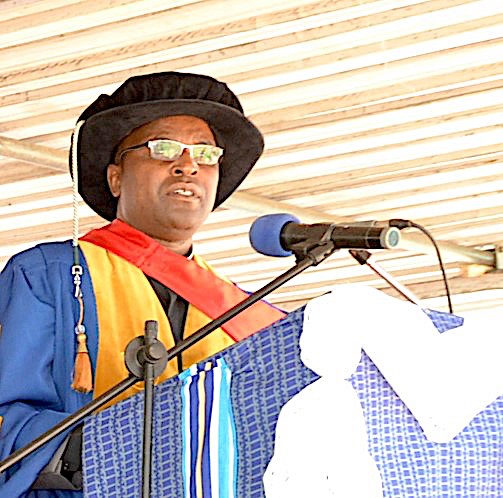MALAWI: Catholic University of Malawi Recommends Quality Adult Education

Rev.Fr. Dr. George Buleya, Vice-Chancellor of the Catholic niversity of Malawi,
Luke Bisani
The Catholic University of Malawi, CUNIMA, has urged Africa countries to consider quality education to adults as one way of developing the African continent.
Speaking during a one-day Webinar on 27th May,2021 that was organized by the Catholic University of Malawi together with Nelson Mandela University in South Africa, Vice-Chancellor of the Catholic University of Malawi, Rev.Fr. Dr. George Buleya called for need to have quality adult education in Africa.
The Vice Chancellor said institutions of higher learning in Africa need to look at adults as people who need skills beyond literacy skills.
“As Catholic University of Malawi, we are not looking only at the youths. We are also looking at adults for them to access quality education. For Africa and Malawi in particular, to develop, we need quality education to everyone,” said Rev.Fr. Dr. Buleya
Concurring with Catholic University of Malawi Vice-Chancellor, Director of Centre for Integrated Post-School Education and Learning at Nelson Mandela University in South Africa, Ivor Baatjes expressed worry on hiccups facing adult education in Africa.
“Financial support for Adult Education remains very low; Capacity building in Adult Education System is inadequate; yet education is regarded as a vehicle for poverty alleviation, sustainable and economic development,” said Baatjes.
He further added that maps of poverty, illiteracy and unemployment continue to mirror each other in Africa, hence need for action.
Baatjes then called for a need to build adult education relevant to the needs and interests of communities and mobilize active participation including political and economic will in support of adult education.
Under one of its seven faculties, the Catholic University of Malawi introduced the first-ever diploma in Adult Education and Development which is housed under the Faculty of Social Sciences to spearhead quality education to adults.
The program is aimed at preparing adult education practitioners who will be able to have mid-level skills related to research, evaluation and community development in the country.


